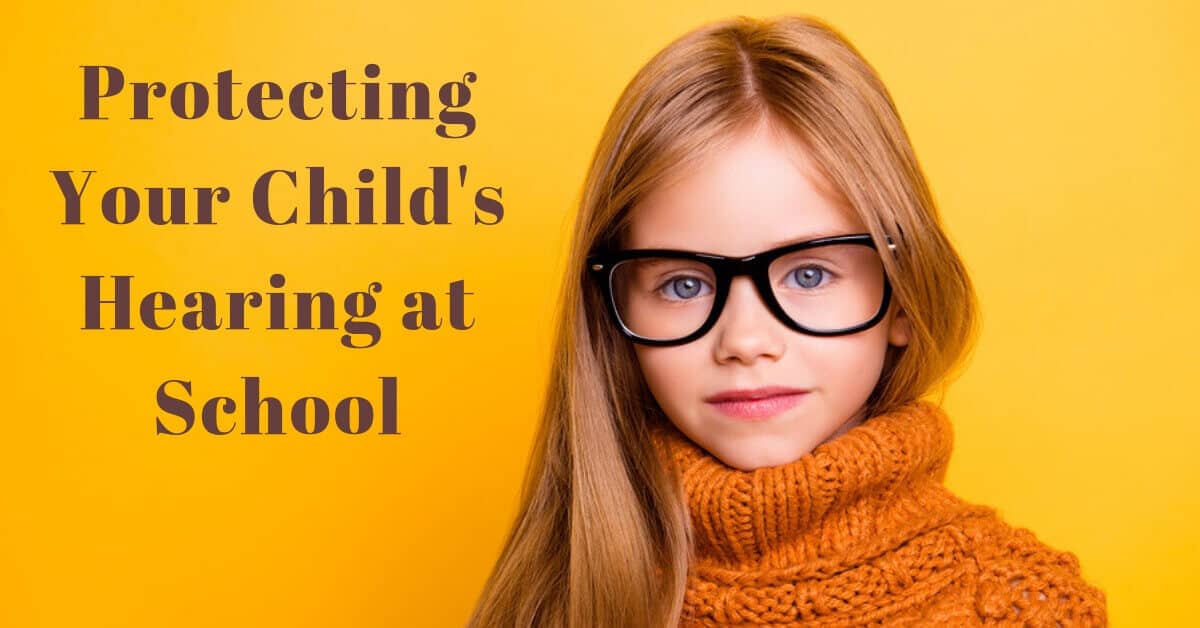
- A Step-by-Step Look at How Hearing Aids Make Sounds Sharper - May 5, 2025
- Causes of Conductive Hearing Loss? - April 27, 2025
- Can Treating Hearing Loss Reduce Stress? - April 15, 2025
Just as it’s important to pay attention what your children are eating or drinking, it is equally important to be aware of the sounds they are exposed to on a regular basis. Noise-induced hearing loss can impact anyone of all ages, and is often preventable. Research shows that close to five million children in the U.S. suffer from this condition. As the school year has just begun, make sure your children are well protected from sounds at school that could be damaging to their hearing.
Be Aware of Sounds from These School Environments
As the school bells rang earlier this fall calling children back to school, it is important to recognize that the school year can be a noisy one. School bells, bus rides, band practice, children yelling and screaming in the cafeteria or hallways, loud sounds are everywhere during the school day. Be aware of these places at school that may put your child’s hearing at risk.
The Bus can be a noisy environment. With so many students congregated in one place, it is bound that children will talk over one another, often even to the point where they aren’t using their “inside voice”. Children also use their time on the bus to listen to music or play games on their electronic devices, often turning up their volume to unsafe levels.
Just as the bus can be a noisy place, so can the classroom. Music class is often an enjoyable time for students, but they can also be a risk to your child’s hearing. Long and frequent exposure to loud music may lead to noise induced hearing loss. Large impulses of sound emanating from drums, horns, or other instruments could be extremely damaging. Speak with the music teacher about ways to protect a child’s hearing in such environments.
Being outside on the playground may expose students to excessive everyday noises from traffic, sirens, trains, or construction. These types of sounds often are above the safe 85 decibels and can lead to hearing loss. If you have concerns, visit the playground and hear the noise for yourself. Speak with teachers or school administration if there is a concern.
Gym class or afterschool sports programs often meet in some sort of field. Often times, these environments can be noisy due to the cheering crowds or loud whistles. School sports programs should be able to provide proper protection for students’ ears in these environments. Likewise, if specific sports like wrestling or softball, ear protection could be provided by the school.
Symptoms of Hearing Damage Among Children
Children often don’t directly complain about hearing loss or may not even be aware of hearing damage. They often won’t complain and say, “I can’t hear well”, but they may exert other subtle signs and symptoms of hearing loss.
Distracted behavior resembling attention problems may be a subtle sign of hearing loss. Background noise can easily distract children with hearing damage and often take their attention away. Another subtle sign may be in how a child describes ringing noise in their ears. Children may explain tinnitus (ringing in the ears) as bees buzzing, trains whistling, or wind blowing and may not report anything if they think everyone else hears what they’re hearing.
In addition to these subtle symptoms, being irritable or upset in loud settings, a sporting event or noisy birthday party, may be another sign of hearing loss. Next time out at a loud environment, check to see if your child has sensitivity to the sounds.
All the aforementioned signs of hearing damage among children are also everyday common issues, but knowing that noise-induced hearing loss can lead to longer term problems, it is important to also assess these symptoms through the lens of hearing.
Tips for Protecting Children’s Hearing
Noise-induced hearing loss has impacted so many children in the U.S. already, it is important to take preventative measures to protect your child. As children are exposed to so many different types of noises each day at school, you can give your children a pair of earplugs to carry in their backpacks. Encourage your child to put them on if they encounter noisy situations. Furthermore, provide your children with knowledge about hearing loss and to be aware of hazardous environments.
Another thing you can do is talk to your children’s teachers or school administrators about noise-induced hearing loss and how important it is to protect young ears. If you can identify certain environments at school being too loud adding to potential hearing loss, suggest them to take preventative measures to protect students’ ears.
In order for your child to thrive in school, they must be able to clearly listen to their teachers. Just as it’s important that your child have great physical and mental health, hearing health is equally as vital. Schedule a hearing test for your children with Hearing Aid Specialist of the Central Coast today!
